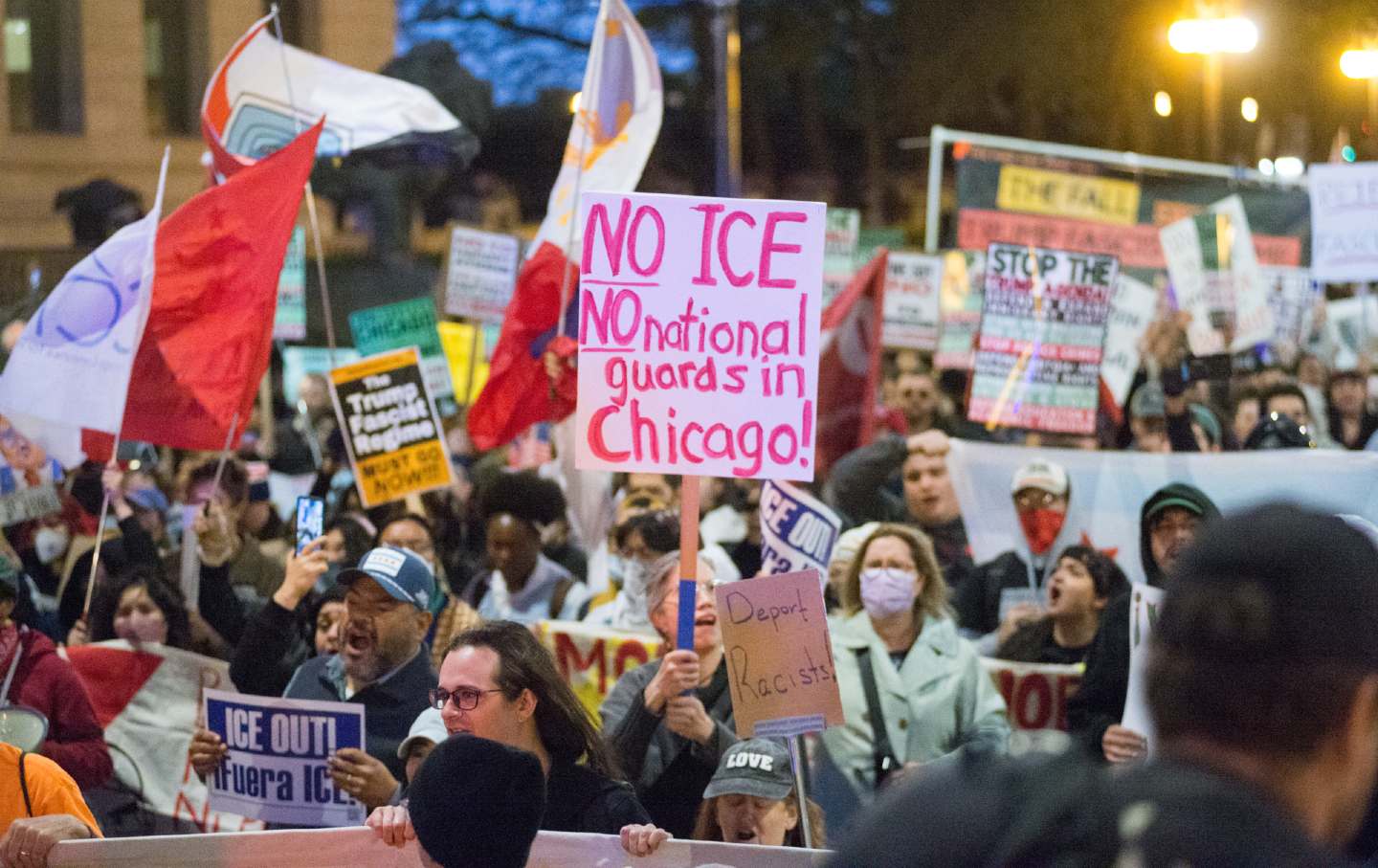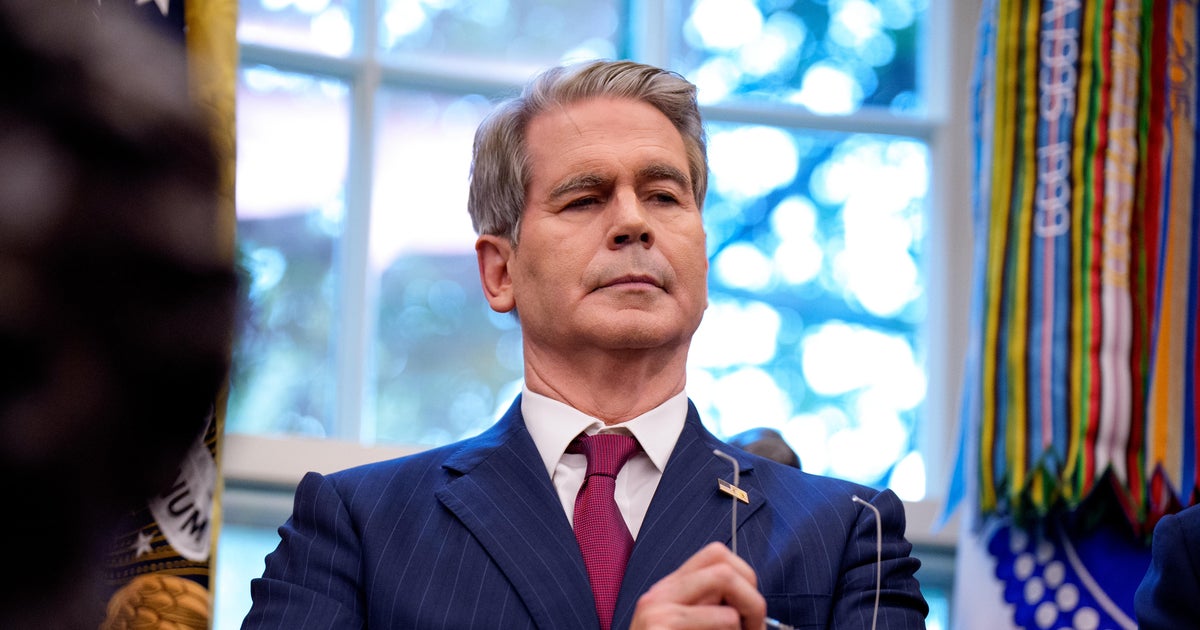
Last weekend, in a chilling manifestation of state power, federal agents descended on Chicago, revealing a grim vision of the future—a United States marked by military occupation in urban centers. The presence of ICE agents and state troopers at the Broadview processing facility showcased the very real implications of Trump’s authoritarian policies, as residents and activists rallied to push back against this unwarranted aggression.
For an unrelenting 24 hours a day, protesters have stood resolutely outside the federal building, confronting a heavily militarized response, which has included ICE snipers perched ominously above. Over the past week, demonstrators have faced brutal tactics, including tear gas, pepper spray, and rubber bullets aimed at silencing their dissent. In one shocking incident, ICE agents assaulted Pastor David Black with pepper spray directly to his face and brutally beat Rabbi Michael Ben Yosef, leaving him needing emergency medical care after agents dogpiled him, treating him like a mere object rather than a human being. These scenes of violence are not anomalies; they reflect a systemic dehumanization of marginalized communities under the guise of law enforcement.
The indignities do not stop there. Even the elderly have not been spared from state-sanctioned violence. Witnesses reported that an 80-year-old woman holding a protest sign was shoved to the ground, resulting in serious injuries. Adam Dzurko, a young protester, articulated the heavy emotional burden of witnessing such brutality, stating, “To target helpless people is so disheartening to me. It breaks my soul.” Dzurko, who faces his own medical challenges, brings his service dog Bea to the protests, outfitted with protective gear against tear gas.
What is profoundly disturbing is the concerted effort by the Trump administration to deploy federalized National Guardsmen into cities like Chicago, which Trump has falsely labeled a war zone plagued by crime and undocumented immigrants. This militarization of everyday life is a strategic move to suppress dissent and instill fear among communities fighting for their rights. Trump’s recent social media tirade calling for the arrest of Illinois Governor J.B. Pritzker and Chicago Mayor Brandon Johnson for their refusal to comply with ICE orders underscores the administration’s troubling inclination to weaponize state power against political adversaries.
In response, Pritzker’s administration has filed a lawsuit against the deployment of troops. However, federal lawyers have shown an alarming disregard for judicial processes, refusing to delay troop deployment despite the judge’s request for a careful review of the situation. This blatant dismissal of the rule of law invites a dangerous precedent where political convenience trumps constitutional rights.
Meanwhile, the Pacific Northwest has provided a glimmer of hope, as courts have pushed back against federal overreach. The Ninth Circuit Court of Appeals upheld a temporary block on the deployment of federalized National Guardsmen in Portland, asserting that the conditions did not warrant such a military presence. This legal pushback indicates that while the federal government seeks to expand its authoritarian reach, the judiciary can still serve as a counterbalance.
California’s Attorney General Rob Bonta has also taken a stand, challenging the rationale behind deploying federalized Guardsmen to Oregon if their absence doesn’t result in irreparable harm in Los Angeles. His assertion that the president is “untethered from the facts” highlights the disconnection between the administration’s narrative and the reality on the ground. The legal battles in California are not only strategic but essential in protecting human rights and maintaining a semblance of democracy in the face of escalating authoritarianism.
Trump’s threats to invoke the Insurrection Act to mobilize troops into Democratic-led cities further escalates this crisis. Such a move would be a gross overreach of executive power, and Bonta has vowed that California will respond swiftly in court. This moment is critical; the implications of such military mobilization are profound, potentially stripping citizens of their rights under the guise of maintaining order.
In Chicago, residents are not merely waiting for court rulings to restore democratic norms. They are mobilizing, forming self-defense committees and neighborhood associations to resist ICE and military occupation. Daily demonstrations outside the Broadview facility are gaining momentum, and the city’s public school system is taking proactive measures to monitor ICE activity within its jurisdiction. Political leaders are increasingly vocal, denouncing the troop deployments as fascist tactics that threaten the very fabric of democracy.
As the situation escalates, the upcoming No Kings protests on October 18 represent a critical juncture for American democracy. The call to action is clear: millions must rise in defense of human rights and against a government that seeks to militarize our cities and silence dissent. The fight for social justice, equality, and accountability is far from over; it is just beginning. In the face of oppression, we must stand united, for the spirit of resistance is alive, and it is growing stronger by the day.
This article highlights the importance of Resistance Against Militarization.


